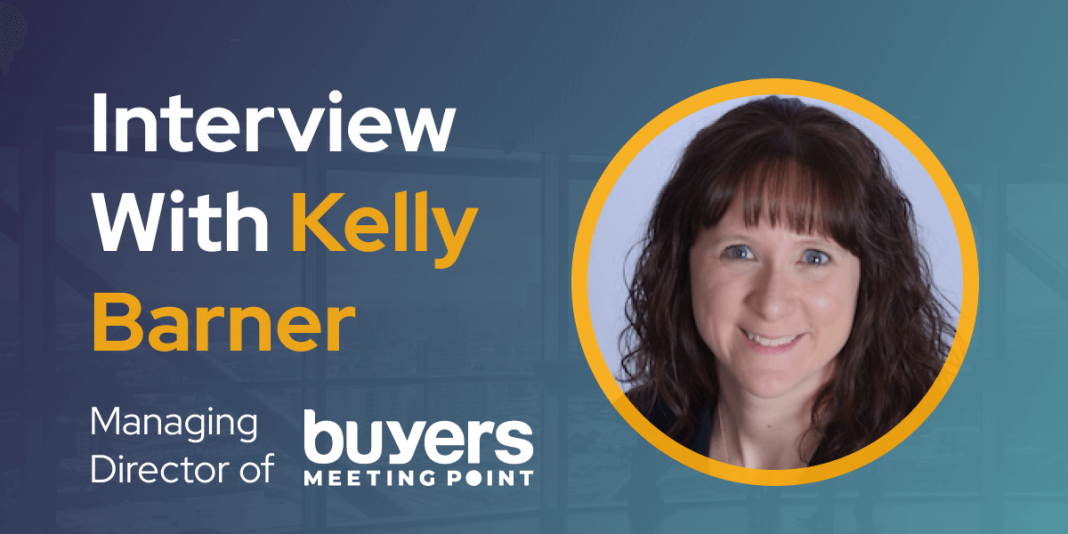Hi Kelly, tell us about yourself and your background and how you got to the supply management space?
Sure – thank you for having me! I have a B.A. in English Literature before 1700 and History – a career in procurement and supply chain was clearly not my original plan. I also have a M.S. in Library and Information Science, a degree that led me to take a position in the global knowledge management program at Ahold, a global food retailer based in the Netherlands.
In 2003, Ahold admitted to overstating its profits in an accounting scandal that paralleled the one at Enron. Nearly overnight, every nonessential corporate program was terminated – yes, including knowledge management. Luckily for me, I was halfway through a company-sponsored M.B.A. program and someone in HR realized that if I was laid off, that investment walked out the door with me. They offered me a position in the not-for-resale (indirect) sourcing group and the rest is history!
After working on that team for two years and earning my M.B.A., I took a position with the consulting team at Emptoris, a procurement technology provider that was acquired by I.B.M. in 2011. That role gave me the opportunity to design strategic procurement programs in a number of companies and industries – no one had come up with the label ‘procurement transformation’ yet, but that’s precisely what we were doing.
In the summer of 2009, a former colleague from Ahold approached me about joining Buyers Meeting Point, a new company that would centralize information for procurement professionals, and I jumped at the change to take a spin in an entrepreneurial venture. I bought her out several years later and became the sole owner of the company. I’m now in my 12th year as an independent writer and industry thought leader and I have taken on several additional roles, including General Manager at Art of Procurement, Business Survey Chair for the ISM-New York Report on Business, and host of the Supply Chain Now livestream ‘Dial P for Procurement.’
Online commerce was booming in 2020; how did it affect brands’ supply management strategy? – What should be the main focus for brands this year?
In my opinion, there are two answers to this question. In the B2C space, you can’t talk about 2020 supply chains without including ‘BOPIS’ – buy online pickup in store. The acronym would be too long, but most retailers also offer buy online and we’ll walk it to your car. BIWWITYC? For traditional logistics providers, the biggest challenge has always been the final mile, or delivery to the consumer’s home. The pandemic affected consumer demand and shopping habits in ways that brick and mortar retailers had to accommodate, including their own final mile – getting their product into the hands of consumers that don’t want to leave their homes or cars. Some of these shopping habits are here to stay, and an opportunity has been created for the retailers and companies who can do it better than their competition.
The challenge is different for B2B companies. In 2020, many of them learned that their risk management strategies were poor, and their suppliers’ risk management strategies were nonexistent. Gaining visibility into these challenges and putting better plans in place for the future has become a top priority for the entire enterprise – one that should be led by procurement. The other rude awakening many companies had last year was finding out that they had not been good customers – for years in some cases – and so their suppliers did not prioritize their needs when the going got tough. As my Supply Chain Now colleague, Greg White told me, “Now is not the time to make new friends.” How’s that for a truth? Companies that paid lip service to the supplier experience had a hard time getting the products and services they needed to keep their operation moving in 2020. This is going to take much longer to resolve than putting in a BOPIS program because it requires a fundamental mindset shift about partnering with suppliers in addition to process and technology changes. It also hands the advantage to companies that were true partners to their suppliers or looked out for small supplier cash flows when shutdowns were put in place.
Kelly’s checklist for CX strategy
In your POV – What is the ultimate checklist for a good customer experience strategy?
My checklist for building a good customer experience includes:
- Consume your own product. Whether you are a retailer, restaurant, manufacturer, or professional service provider, it is absolutely critical to walk through your own company’s customer experience process and experience it first-hand. Many situations that seem acceptable or go unnoticed from an internal perspective can chase away both current and prospective customers.
- Ask your customers questions. Leadership teams are expected to be smart and creative, but they can’t possibly have all the answers. Customers can provide critical feedback that not only makes it easier for a company to retain existing business, but to increase their market share as well.
- Listen to what your customers say! Asking questions is one thing – hearing their responses is another. If you can ask customers a question and get responses that are truly hard to hear, you know you are focused in the right place. The harder to hear their feedback is, the greater the opportunity it presents for improvement.
How much has the role of the CEO changed in the social distancing era – what role digital transformation has in this crisis?
The first thing we’ve learned here – and this may be specific to procurement and supply chain or not – is that there is digital transformation and then there is digital transformation. Many companies that thought they had transformed their spend and supplier management processes sent employees home only to find out that there was still some manual ‘sausage making’ required to facilitate communications and transactions. Unless a solution is fully digital and provides easy access to everyone in the company no matter where they are, digital transformation is partial at best.
In terms of the CEO’s role, I certainly don’t envy them. With very little notice, they were expected to become crisis workers, mental health professionals, triage experts, and more. What I’ve seen from the best C-level executive responses includes 2 things: first, they not only showed empathy for their teams, they felt that empathy. I’ve had heartbreaking conversations with execs who shared stories of employees with substance abuse problems, delicate domestic situations, and stress resulting from kids being in the house all the time. It is very easy to tell the difference between an executive that thinks they are doing the right thing under the circumstances and executives that are simultaneously following their hearts and minds to help employees today and save the company for tomorrow.
The other impressive response I’ve seen is a willingness to admit they do not have all the answers and solicit honest feedback from others in the company. Most functions have been given unprecedented opportunities to act in an advisory capacity to CEOs who were open to ideas because they could not have been expected to predict the events and challenges of 2020.
What was the biggest lesson you learned in 2020?
No one can do it alone – and it doesn’t matter what your ‘it’ happens to be. We need strong colleagues, leaders, families, and communities to help us get through tough times and celebrate good times. And just like the companies that found out they didn’t have suppliers to lean back on because they had a track record of being lousy customers, some individuals learned that they hadn’t made enough of an investment in their support network to navigate the challenges of 2020. We all need to invest in the people around us long before we expect anything in return.
2020 was the year of webinars and online events, what was your favorite one?
That’s an easy question! AOP Mastermind LIVE took place in October of 2020. Philip Ideson (Founder of Art of Procurement) and I had always intended Mastermind to be fully virtual and we’ve run virtual events in the past – most notably The Procurement Revolution in 2016. Despite some technology challenges and a bigger, more ambitious format than we’ve ever tried to fill before, we had an amazing, live 2-day event. Jan Griffiths filled our ‘main stage’ with her bigger-than-life energy and optimism, and speakers like Stephanie Thum CCXP, Marcell Vollmer, Keith Hausmann, and Christopher Sawchuck gave our audience new ideas and inspired them with the art of the possible. We also managed to have a bit of fun at the same time, making full use of the platform’s chat features to connect with colleagues and friends during and between scheduled sessions.
It looks like working from home is going to stay with us for the foreseeable future, how should CX Executives gear up to the changing times?
I think the greatest challenge for CX executives is going to be staying connected to what their customers are really feeling and experiencing. It has been common practice to develop customer/target personas, but that may not be enough in 2021. Finding creative ways to connect with customers for listening sessions and balancing that with data that captures or represents the actual patterns and behaviors of customers will be key.
Last but not least, what is your favorite CX metric?
To me, it comes down to one key quantative metric and one key qualitative ‘metric.’ Customer Satisfaction is critical for me, since I am in a services business. But because I also invest in my industry reputation, any opportunity to hear how I am perceived by my target audience/customer is critical. That feedback shows me where I need to invest more energy and where my intended tone is coming through accurately to the individuals and companies I am trying to reach.






